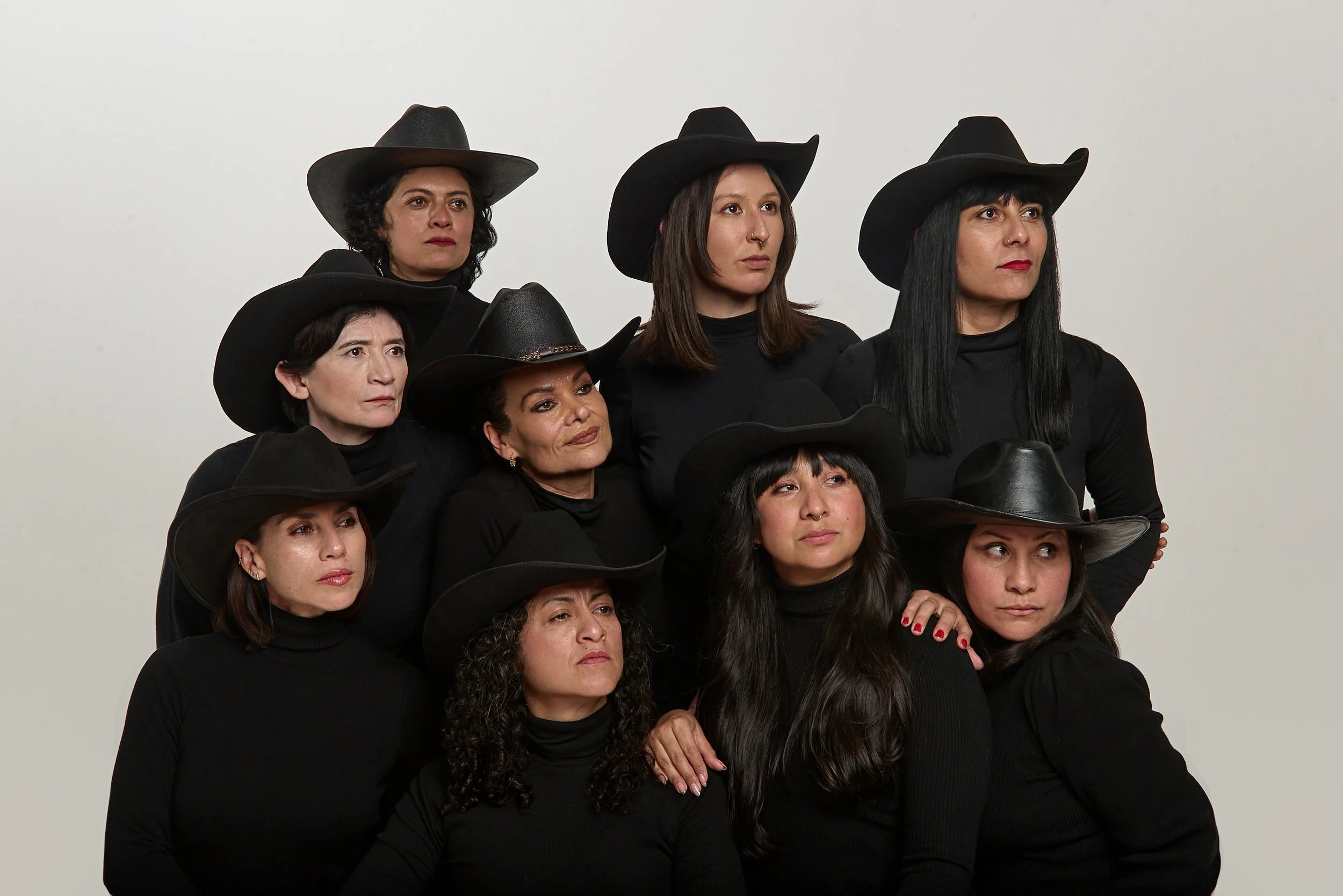Queering the Border: Que el amor nos haga
by Dora Arreola
Queering the Border: Que el amor nos haga (Love Makes Us) is a bilingual devised theatre project based on stories of women and LGBTQ2S+ asylum seekers from Latin America. The project addresses global forced displacement caused by social, economic, and environmental injustices. The play explores the realities and symbolism of the U.S.-Mexico border, from the border wall, to interrogation, inspection and detainment, that occurs in the geopolitical region of these two countries, creating situations that increase xenophobia, homo/transphobia, and the incarceration of children, among other injustices. Approaching stories from a feminist, queer, and anti-colonial point of view, the project sheds light on the reasons people migrate: from fleeing domestic or state violence, to homophobic or transphobic assaults, to climate crises and poverty.
In addition, Queering the Border: Que el amor nos haga explores the theme of love through the lens of decolonization. Through the stories of the main characters—two women from the South of Mexico who are waiting to be interviewed at the border, hoping to emigrate to the United States, and a young queer DACA (“Dreamer’) in the U.S. who escaped from a conversion therapy center—this play explores rituals and imagination as tools of struggle, resistance, and healing.
Queering the Border is an ensemble work created by a company of artists from Mexico and the United States (actors, musicians, media designer, choreographer, and director). Lead artist Dora Arreola is the founding Artistic Director of Mujeres en Ritual Danza-Teatro, a company with a 25 year history of impact in the Tijuana-San Diego region. The ensemble includes members of Mujeres en Ritual; choreographer and Artistic Director of Peìndulo Cero Contemporary Dance, Miroslava Wilson; and Bibi Uribe, popular TV host of “Mas Que Palabras” on Televisioìn Binacional-Televisa Channel 12 (Tijuana, Mexico).
The performance includes news media, theatre, live music, and traditional dances and rituals from Mexico in combination with contemporary dance forms. In addition to performances, the project will create artistic containers for dialogue, both in person and online, interrogating the construction of borders, migration laws, and the colonial and patriarchal agendas of nation states.


